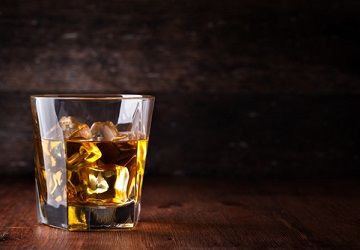Throwing a Holiday Party? Think of your Teeth!
It turns out that some common holiday vices, like alcohol, tobacco, and caffeine, have recently been linked to sleep bruxism, or teeth grinding, according to the Journal of the American Dental Association (ADA).

The holidays are right around the corner, and you might be in the middle of organizing your practice’s annual party. There’s just one more thing for you to think about — your teeth! It turns out that some common holiday vices, like alcohol, tobacco, and caffeine, have recently been linked to sleep bruxism, or teeth grinding, according to the Journal of the American Dental Association (ADA).
The ADA conducted a systematic review of studies in which sleep bruxism (SB) was diagnosed through the use of questionnaires, clinical assessments, or polysomnography. The problem was also evaluated for its association with alcohol, caffeine, and tobacco consumption, as well as with drug abuse. The incidence of SB was graded as being possible, probable, or definitive.
In total, 818 studies were reviewed. Eventually, seven studies were selected for inclusion, with participant samples ranging from 51 through 10,229 study participants. The reviewers were able to show that alcohol use, common this time of year, was highly associated with SB, as was tobacco use. One study also indicated a weaker positive relationship between participants that drank large quantities of coffee and SB.
In alcohol users, the odds of having SB seemed to increase almost two-fold. The odds of having SB for people who drank more than eight cups of coffee every day was almost one-and-a-half times greater than those who didn’t. Current smokers showed the worst results, with the odds for SB increased more than two-fold compared to non-smokers. When researchers investigated one specific drug of abuse, methylenedioxymethamphetamine (MDMA), there was not sufficient evidence to make a positive correlation between the drug and teeth grinding.
The reviewers acknowledged that they had limited evidence, but did conclude that teeth grinding is positively associated with alcohol and caffeine use, as well as with smoking. Further study is needed to determine the relationship between drugs included in the study, like MDMA, and SB.
So, while it’s important to have fun and celebrate the holidays with your coworkers, keep in mind that your teeth might be affected by your party choices later. As Michael Glick, DMD notes, “dentists and patients alike should be aware of the potential health effects from overuse of tobacco, alcohol and caffeine. This study is a great contribution to the dental community’s growing knowledge on this topic.”